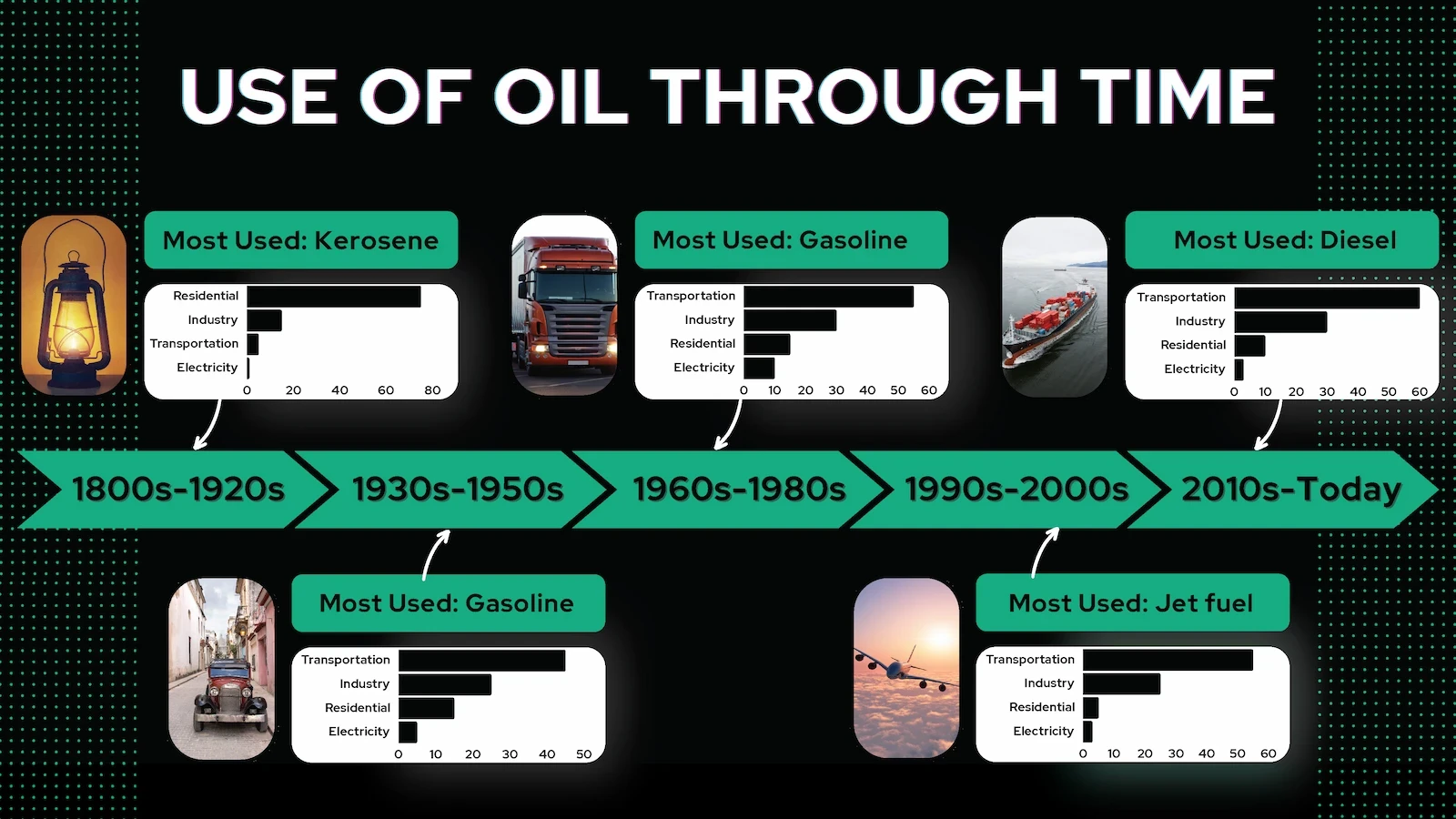The History and Evolution of Oil
Article
Nov 19, 2024
For over five hundred million years, various types of organic material have become what we know as oil deep in the ground beneath our feet. In the time since then, humans have been able to utilize oil to drive forwards several sociopolitical and technological advancements, many of which we still benefit from in the modern age.
Early Oil Usage
Even before humans started using oil like we do today, ancient societies would use different forms of oil in their daily lives. In 4000 B.C., the people of Mesopotamia would use a sticky crude oil called bitumen as an adhesive for various construction purposes, such as holding together weapon handles or caulking ships. The ancient Egyptians also used oil for embalming as well as an adhesive for projects such as the buildings in the ancient city of Babylon and the famous Egyptian pyramids.
In ancient China, it is believed that one of the first forms of oil drilling was developed, preceding western developments by hundreds of years. Over 2000 years ago, by using bamboo as the pipe in which oil and natural gas could travel through, ancient Chinese civilizations were able to dig as deep as nearly two hundred and fifty meters, or about 800 feet, into the ground. This oil would then be used for lighting lamps as well as heating the interiors of homes and other buildings.
Oil Drilling Innovation
The modern age of oil started in the late nineteenth century. In Titusville, Pennsylvania in August of 1859, a man named Edwin Drake struck. Before Drake’s well, other efforts had been made to find oil in the area, but to no avail. Drake had figured out the problem was that the oil was deeper than the machinery at the time could reach, in which he created the Drake Well. On August 27, 1859, after digging nearly seventy feet into the ground, the Drake Well struck oil. It was due to Drake’s oil well that Pennsylvania became a hub of oil production, up until 1901 with the Texas oil boom. Regardless, Edwin Drake’s name and invention have cemented him as an important point in the history of oil and, more importantly, changed the course of oil drilling efforts for centuries afterward.

The Evolving Role of Oil
Following the oil boom created by Edwin Drake’s invention and discovery of oil, many other countries followed suit in the race to find oil. While oil was initially discovered in Iran in 1908, it wasn’t until after the second World War that this discovery would become important to world geopolitics. Due to the wealth of oil in the Middle East, various engineering projects were carried out by other countries throughout the fifties and sixties. These projects boosted the lives of the people in the Middle East, and in turn has made the Middle East an important part of geopolitical maneuvers, even now.
As we enter the modern age of trying to create a sustainable future, oil is more important than ever in that. For example, many forms of transportation, such as cars, ships, and airplanes, are heavily reliant on gasoline and diesel. These forms of transportation make it possible for various sustainability efforts to be carried out worldwide through different countries. Even if efforts to make transportation more reliant on electricity are carried out to wide-scale fruition, oil is still the main factor in the manufacturing and recycling of various sustainability efforts. While humanity is far from being able to disregard oil as a resource entirely, we are in a stage now that oil is being used for more than just fuel, but also as a tool to push us forward into a sustainable, profitable future.
On this page




